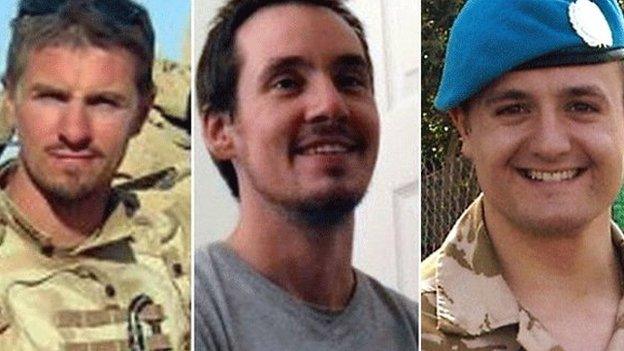Brecon Beacons SAS selection deaths 'unacceptable'
- Published
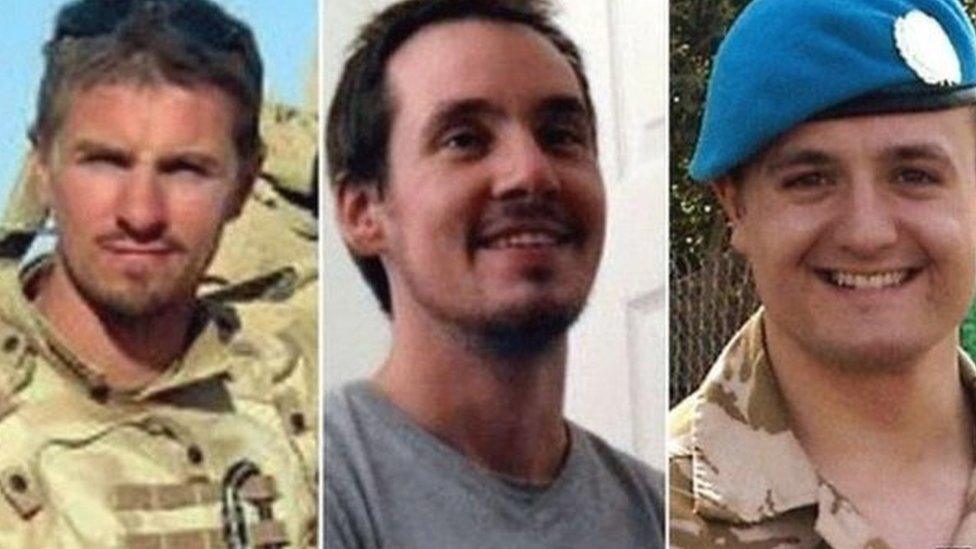
Cpl James Dunsby, L/Cpl Edward Maher and L/Cpl Craig Roberts died in July 2013
The deaths of three reservists on an SAS selection march were unacceptable, the armed forces minister has said.
Military chiefs have been ordered to carry out two inquiries after the deaths of three men on the Brecon Beacons in 2013.
L/Cpl Edward Maher, L/Cpl Craig Roberts and Cpl James Dunsby died as a result of neglect on the 16-mile march.
The inquiries will see if safety lessons have been learned and look at support given to the men's families.
Armed Forces Minister Penny Mordaunt has now responded to a series of concerns raised by the coroner Louise Hunt at an inquest earlier this year.
She has written to the coroner, saying "we fully recognise how important it is that we learn all possible lessons to ensure that deaths under similar circumstances in the future can be prevented".
Ms Mordaunt added: "We are also committed to supporting our servicemen and their families and we recognise fully that it is unacceptable to lose three soldiers in such circumstances."
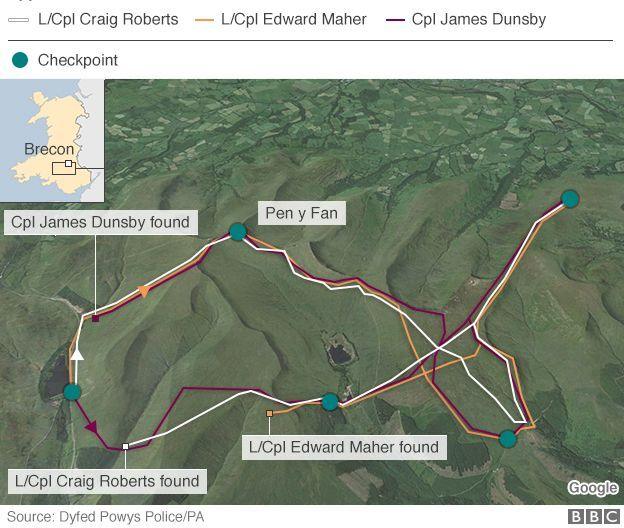
The soldiers were carrying 50lbs (22kg) of equipment on the march
Cpl Dunsby, from Trowbridge, Wiltshire, L/Cpl Roberts, from Penrhyn Bay, Conwy, and L/Cpl Maher, of Winchester, Hampshire, were on course to complete the march within the allocated time but were found in three separate locations at different times.
All three suffered the effects of hyperthermia - abnormally high body heat - and Ms Hunt said a failure of basic medical care contributed to their deaths.
The men's inquest heard had organisers strictly followed the MoD code of practice, the march would have been cancelled after two men - not among those who died - were withdrawn from the exercise due to heat sickness.

Changes introduced
Medical plans for such exercises must be approved by the senior medical officer and chief training instructor
All medical staff must rehearse before future exercises
Training in heat illness and treatment must be given to all specialist military units, commanders are briefed and reservists must understand the procedures
Prompt and accurate heat illness records must be kept
Commanders will speak to police and mountain rescue and confirm the nearest search and rescue location. Medical staff must also liaise with local hospitals

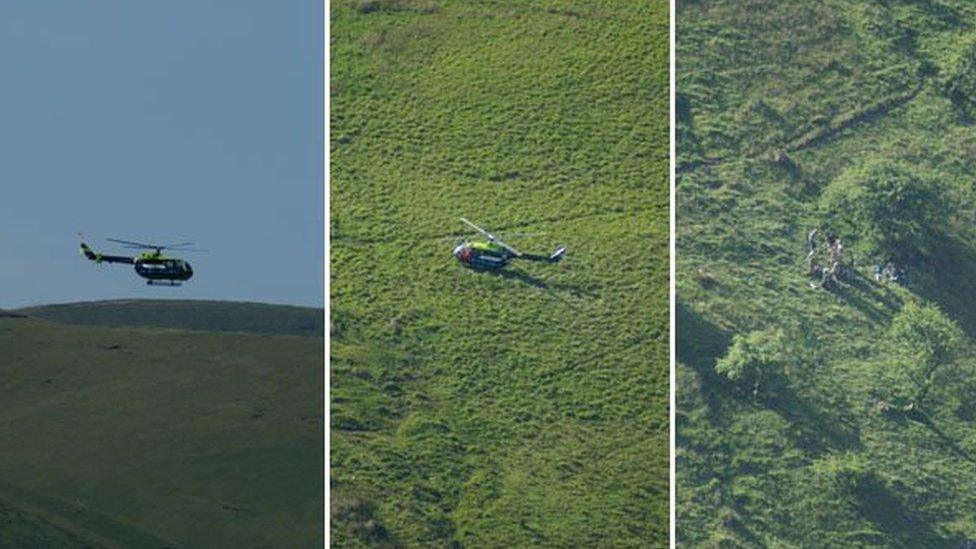
Nathan Yates, a walker from Cardiff, witnessed rescue attempts on one of the three men who died
Ms Mordaunt has also told the Ministry of Defence (MoD) to review the training needs of the reservist units who were involved in the march, which was carried out on one of 2013's hottest days.
The inquiry into the lessons learned will aim to ensure that they are applied across all forces endurance training.
Among the issues raised by the coroner were flaws in a tracker system used to monitor soldiers' movements.
Ms Hunt said because it did not work properly, those in charge of the exercise could not identify static or slow-moving soldiers.
The minister accepted there were "challenges" in interpreting the tracker and the system also had problems coping with a lot of a data.
An upgrade is due to take place before the end of the year.
- Published24 July 2015
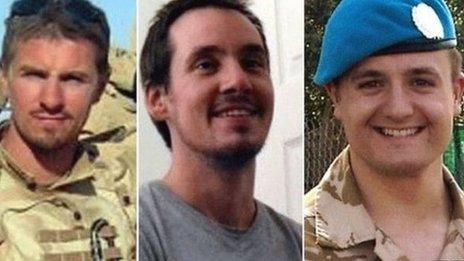
- Published15 July 2015

- Published14 July 2015

- Published14 July 2015

- Published26 June 2015
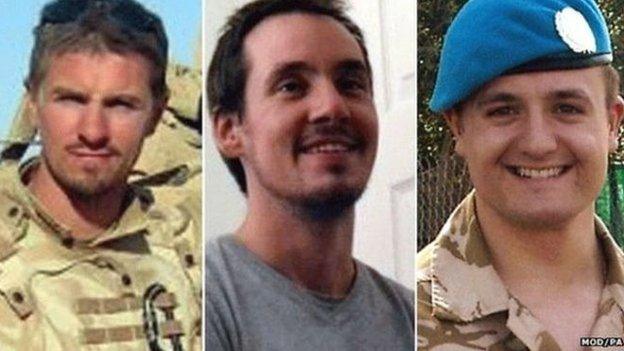
- Published12 June 2015
